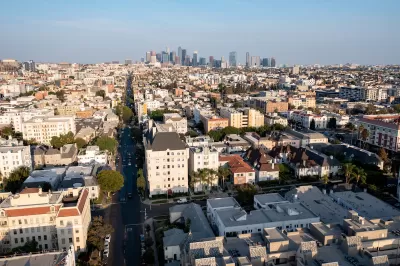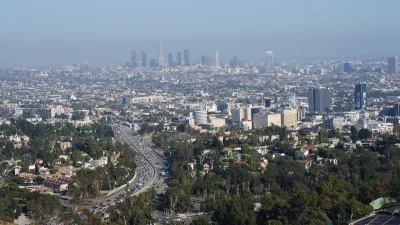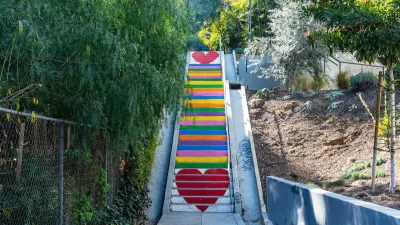LA's thermal inequities leave low-income, minority neighborhoods disproportionately hotter and more vulnerable, prompting advocacy and policy efforts to address these disparities through green infrastructure and equitable climate investments.

Los Angeles faces significant thermal inequities, with low-income and minority communities enduring higher temperatures due to a lack of green spaces and historical public policies. Wealthier, predominantly white neighborhoods benefit from tree canopies, air conditioning, and water-intensive landscaping, while areas like South LA and the San Fernando Valley, which have a history of redlining, suffer from minimal vegetation and older, heat-trapping infrastructure. These disparities have severe health consequences, as minority groups account for a disproportionate share of hospitalizations and deaths during extreme heat events.
The roots of thermal inequity trace back to redlining practices of the 1930s, which systematically deprived minority communities of investment, leading to dense, industrial urban layouts devoid of parks and greenery. Studies reveal that formerly redlined neighborhoods are significantly hotter, with up to 37 percent less tree canopy than wealthier areas. Efforts to address these injustices include cool pavement installations, tree planting, and investments in parks and green infrastructure, as demonstrated in neighborhoods like Pacoima and Sylmar. Recent state initiatives, including a $10 billion climate bond, aim to allocate significant funds toward creating green spaces in disadvantaged areas.
Despite slow progress, community resilience and advocacy offer hope. Local leaders, researchers, and residents collaborate to mitigate urban heat through predictive models and sustainable urban design. Grassroots efforts like those led by youth climate advocates and policy initiatives from the LA County Chief Sustainability Office emphasize equity-driven solutions. Community advocates remain hopeful, highlighting recent efforts to increase tree plantings and awareness, as neighborhoods continue to push for much-needed investments in green infrastructure and climate resilience.
FULL STORY: Thermal Inequity: How wealth and race determine LA’s hottest and coolest areas

Trump Administration Could Effectively End Housing Voucher Program
Federal officials are eyeing major cuts to the Section 8 program that helps millions of low-income households pay rent.

Planetizen Federal Action Tracker
A weekly monitor of how Trump’s orders and actions are impacting planners and planning in America.

Ken Jennings Launches Transit Web Series
The Jeopardy champ wants you to ride public transit.

Washington Legislature Passes Rent Increase Cap
A bill that caps rent increases at 7 percent plus inflation is headed to the governor’s desk.

From Planning to Action: How LA County Is Rethinking Climate Resilience
Chief Sustainability Officer Rita Kampalath outlines the County’s shift from planning to implementation in its climate resilience efforts, emphasizing cross-departmental coordination, updated recovery strategies, and the need for flexible funding.

New Mexico Aging Department Commits to Helping Seniors Age ‘In Place’ and ‘Autonomously’ in New Draft Plan
As New Mexico’s population of seniors continues to grow, the state’s aging department is proposing expanded initiatives to help seniors maintain their autonomy while also supporting family caregivers.
Urban Design for Planners 1: Software Tools
This six-course series explores essential urban design concepts using open source software and equips planners with the tools they need to participate fully in the urban design process.
Planning for Universal Design
Learn the tools for implementing Universal Design in planning regulations.
Heyer Gruel & Associates PA
Ada County Highway District
Institute for Housing and Urban Development Studies (IHS)
City of Grandview
Harvard GSD Executive Education
Toledo-Lucas County Plan Commissions
Salt Lake City
NYU Wagner Graduate School of Public Service





























